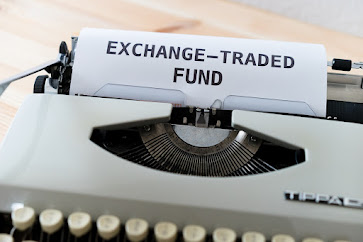"The Ultimate Beginner’s Guide to Forex Trading in 2025"
A Beginner’s Guide to Forex Trading: What You Need to Know
Few markets in international finance are as dynamic—or as misinterpreted—as the foreign exchange market, or forex. Learning about forex trading can be a terrific first step towards comprehending how worldwide money actually moves, regardless of whether you're just inquisitive or searching for new ways to invest. Without using excessive jargon, this essay will explain what forex trading is, how it operates, the risks involved, and how to get started.
---
What Is Forex Trading?
Buying one currency and selling another is known as forex trading. In essence, you're making a prediction that the value of one will increase relative to the other. With more than $7.5 trillion changing hands daily, it is the biggest financial market in the world. Forex is open twenty-four hours a day, five days a week, unlike the stock market. A central exchange does not exist. Pairs of currencies, such as the euro and the US dollar (EUR/USD), are traded.
---
How Does Forex Trading Actually Work?
Let’s say you believe the euro will increase in value compared to the U.S. dollar:
1. You buy EUR/USD at a certain price.
2. If the euro rises, you sell at a higher price.
3. Your profit is the difference.
Most traders use online platforms that offer leverage—meaning you can trade larger amounts with a small deposit. Just remember: leverage boosts gains and losses.
---
Forex Market Flowchart
Here’s a simple visual showing how a forex trade works:
---
Key Forex Terms Explained
Term What It Means
Pip The smallest price movement in a currency pair
Leverage Borrowing capital to trade larger positions
Spread Difference between buying (bid) and selling (ask) price
Lot Trade size (1 lot = 100,000 units of a currency)
Margin Minimum deposit required to open and maintain a trade
---
The 3 Types of Forex Markets
1. Spot Market: Real-time trades at current market prices.
2. Forward Market: Custom contracts for future currency exchange.
3. Futures Market: Standardized contracts traded on official exchanges.
---
Why Do People Trade Forex?
High Liquidity: Buy or sell almost instantly.
Low Capital Required: Start with as little as $100.
Strategic Flexibility: Use technical analysis, fundamentals, or both.
Leverage Opportunities: Boost profits (but with caution).
---
Risks Involved in Forex Trading
Forex trading carries significant risks in addition to its enormous potential. Volatility: Prices can fluctuate rapidly. Big gains can turn into big losses, so leverage risk. Emotional Decisions: Greed and fear can impair insight. Brokers that are not regulated: Some websites might not be reliable. Expert Advice: Always set a stop-loss so that, should a trade move against you, you may automatically leave it.
---
What You'll Need to Begin Forex Trading An FCA, NFA, or ASIC-recognized (reliable) broker A system similar to MetaTrader 4 or 5 A free trial account to practise Analysis-oriented charts and economic calendars
---
A Fast Comparison of Stocks and Forex:
A Look at Forex Stocks Limited Market Hours: 24/5 (depending on exchanges) Extremely high liquidity varies by stock. High Leverage (with certain brokers, up to 500:1) Reduced (usually 2:1) Extremely volatile Typically, lower Contributions Events throughout the world and interest rates Company updates, financial results, and industry Entry Barrier Minimal (start at about $100) Frequently higher
---
How to Get Started in 5 Simple Steps
2. Choose a Broker – Go with a regulated and beginner-friendly option.
3. Open a Demo Account – Try trading without risking real money.
4. Create a Trading Plan – Set goals, risk limits, and strategies.
5. Start Small – Only trade with money you can afford to lose.
---
Final Thoughts
Forex trading can be exciting, rewarding—and challenging. It’s not a quick path to riches. It requires patience, strategy, and constant learning. But with the right mindset, it can teach you a lot about how global markets work and how to manage financial risk.
Ready to explore more? In our next post, we’ll compare forex with stocks and cryptocurrencies to help you find the right fit for your investment goals.




Comments
Post a Comment